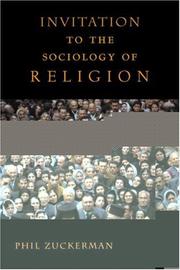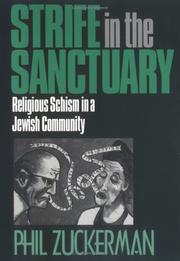| Listing 1 - 10 of 19 | << page >> |
Sort by
|
Book
ISBN: 9781640094246 1640094245 Year: 2019 Publisher: Berkeley: Counterpoint,
Abstract | Keywords | Export | Availability | Bookmark
 Loading...
Loading...Choose an application
- Reference Manager
- EndNote
- RefWorks (Direct export to RefWorks)
In What It Means to Be Moral: Why Religion Is Not Necessary for Living an Ethical Life, Phil Zuckerman argues that morality does not come from God. Rather, it comes from us: our brains, our evolutionary past, our ongoing cultural development, our social experiences, and our ability to reason, reflect, and be sensitive to the suffering of others.By deconstructing religious arguments for God-based morality and guiding readers through the premises and promises of secular morality, Zuckerman argues that the major challenges facing the world today--from global warming and growing inequality to religious support for unethical political policies to gun violence and terrorism--are best approached from a nonreligious ethical framework. In short, we need to look to our fellow humans and within ourselves for moral progress and ethical action.
Book
ISBN: 9780143127932 9781594205088 Year: 2015 Publisher: New York, N.Y. Penguin Books
Abstract | Keywords | Export | Availability | Bookmark
 Loading...
Loading...Choose an application
- Reference Manager
- EndNote
- RefWorks (Direct export to RefWorks)
Book
ISBN: 9780313351815 0313351813 9780313351839 031335183X 9780313351853 0313351856 Year: 2010 Publisher: Santa Barbara : Praeger,
Abstract | Keywords | Export | Availability | Bookmark
 Loading...
Loading...Choose an application
- Reference Manager
- EndNote
- RefWorks (Direct export to RefWorks)
Irreligion and sociology --- Atheism. --- Secularism. --- Irréligion et sociologie --- Athéisme --- Sécularisation

ISBN: 0203866525 9786613045324 128304532X 113594816X 1135948178 9780203866528 0415941253 9780415941259 0415941261 9780415941266 Year: 2003 Publisher: New York Routledge
Abstract | Keywords | Export | Availability | Bookmark
 Loading...
Loading...Choose an application
- Reference Manager
- EndNote
- RefWorks (Direct export to RefWorks)
This book intends to serve as a conversational, colorful, engaging, and provocative introduction to the sociology of religion for undergraduates. Written in lively prose, this volume aims to introduce students to the major themes, problems and goals of the sociological study of religion while also summoning the sense of wonder and curiosity for the enterprise itself.
Book
ISBN: 0814797148 9780814797143 Year: 2008 Publisher: New York New York University press
Abstract | Keywords | Export | Availability | Bookmark
 Loading...
Loading...Choose an application
- Reference Manager
- EndNote
- RefWorks (Direct export to RefWorks)
Book
ISBN: 0814797474 081479727X Year: 2008 Publisher: New York, NY : New York University Press,
Abstract | Keywords | Export | Availability | Bookmark
 Loading...
Loading...Choose an application
- Reference Manager
- EndNote
- RefWorks (Direct export to RefWorks)
“Silver” Winner of the 2008 Foreword Magazine Book of the Year Award, Religion CategoryBefore he began his recent travels, it seemed to Phil Zuckerman as if humans all over the globe were “getting religion”—praising deities, performing holy rites, and soberly defending the world from sin. But most residents of Denmark and Sweden, he found, don’t worship any god at all, don’t pray, and don’t give much credence to religious dogma of any kind. Instead of being bastions of sin and corruption, however, as the Christian Right has suggested a godless society would be, these countries are filled with residents who score at the very top of the “happiness index” and enjoy their healthy societies, which boast some of the lowest rates of violent crime in the world (along with some of the lowest levels of corruption), excellent educational systems, strong economies, well-supported arts, free health care, egalitarian social policies, outstanding bike paths, and great beer.Zuckerman formally interviewed nearly 150 Danes and Swedes of all ages and educational backgrounds over the course of fourteen months. He was particularly interested in the worldviews of people who live their lives without religious orientation. How do they think about and cope with death? Are they worried about an afterlife? What he found is that nearly all of his interviewees live their lives without much fear of the Grim Reaper or worries about the hereafter. This led him to wonder how and why it is that certain societies are non-religious in a world that seems to be marked by increasing religiosity. Drawing on prominent sociological theories and his own extensive research, Zuckerman ventures some interesting answers.This fascinating approach directly counters the claims of outspoken, conservative American Christians who argue that a society without God would be hell on earth. It is crucial, Zuckerman believes, for Americans to know that “society without God is not only possible, but it can be quite civil and pleasant.”
Religion and sociology. --- Religion --- Godless. --- free. --- happy. --- moral. --- societies. --- still.
Book
ISBN: 1479851116 Year: 2020 Publisher: New York : New York University Press,
Abstract | Keywords | Export | Availability | Bookmark
 Loading...
Loading...Choose an application
- Reference Manager
- EndNote
- RefWorks (Direct export to RefWorks)
An updated edition showcasing the social health of the least religious nations in the worldReligious conservatives around the world often claim that a society without a strong foundation of faith would necessarily be an immoral one, bereft of ethics, values, and meaning. Indeed, the Christian Right in the United States has argued that a society without God would be hell on earth.In Society without God, Second Edition sociologist Phil Zuckerman challenges these claims. Drawing on fieldwork and interviews with more than 150 citizens of Denmark and Sweden, among the least religious countries in the world, he shows that, far from being inhumane, crime-infested, and dysfunctional, highly secular societies are healthier, safer, greener, less violent, and more democratic and egalitarian than highly religious ones.Society without God provides a rich portrait of life in a secular society, exploring how a culture without faith copes with death, grapples with the meaning of life, and remains content through everyday ups and downs. This updated edition incorporates new data from recent studies, updated statistics, and a revised Introduction, as well as framing around the now more highly developed field of secular studies. It addresses the dramatic surge of irreligion in the United States and the rise of the "nones," and adds data on societal health in specific US states, along with fascinating context regarding which are the most religious and which the most secular.
Well-being. --- Values Voters. --- Utter obliviousness. --- United States. --- Sweden. --- Sociological Theories. --- Societal Well-being. --- Secularization. --- Secularity. --- Secularism. --- Secular. --- Secular Studies. --- Scandinavian society. --- Scandinavia. --- Rituals. --- Reticence. --- Reluctance. --- Religious People. --- Religious Belief. --- Religion. --- Meaning of Life. --- Jews. --- International Comparisons. --- George W. Bush. --- Denmark. --- Death. --- Danish history. --- Danish culture. --- Cultural Religion. --- Apostasy;Asatru;Atheism;Belief;Benign indifference;Christianity. --- Apostasy. --- Asatru. --- Atheism. --- Belief. --- Benign indifference. --- Christianity.

ISBN: 0761990542 Year: 1999 Publisher: Walnut Creek London New Delhi Altamira Press
Abstract | Keywords | Export | Availability | Bookmark
 Loading...
Loading...Choose an application
- Reference Manager
- EndNote
- RefWorks (Direct export to RefWorks)
Book
ISBN: 9780814797471 Year: 2008 Publisher: New York, NY
Abstract | Keywords | Export | Availability | Bookmark
 Loading...
Loading...Choose an application
- Reference Manager
- EndNote
- RefWorks (Direct export to RefWorks)
Book
ISBN: 9781479851119 Year: 2020 Publisher: New York, NY
Abstract | Keywords | Export | Availability | Bookmark
 Loading...
Loading...Choose an application
- Reference Manager
- EndNote
- RefWorks (Direct export to RefWorks)
| Listing 1 - 10 of 19 | << page >> |
Sort by
|

 Search
Search Feedback
Feedback About UniCat
About UniCat  Help
Help News
News